Share
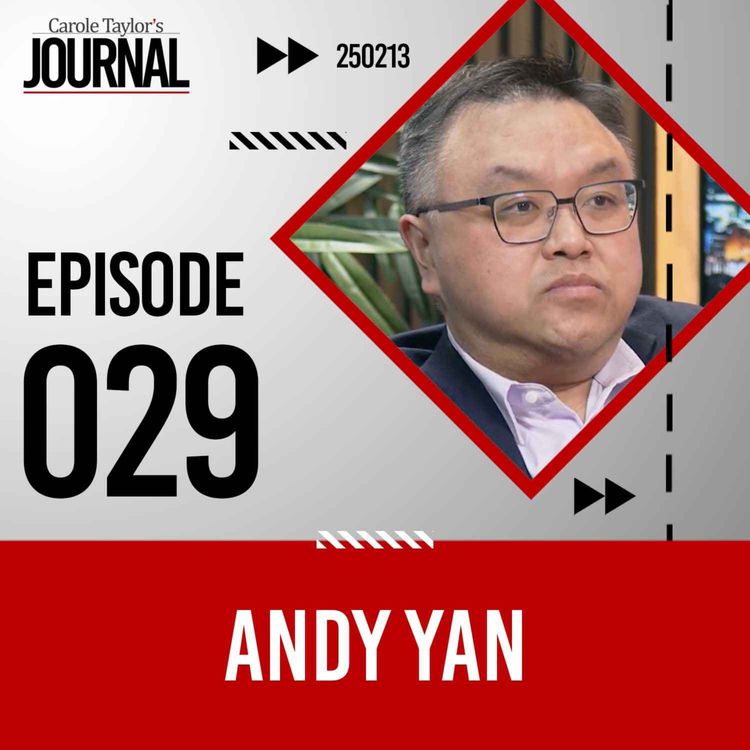
Carole Taylor's Journal
29 | City at a Crossroads (w/ Andy Yan, city planner)
In this episode of Journal, we take a close look at what is happening to city planning.
When I was in civic politics, things were definitely not perfect, but I would say the governance structures and roles were clearer than today.
For instance, at that time, the federal government did not deal directly with municipalities – they worked through the provincial government. Not today. The Trudeau government has gone straight to certain cities with financial enhancements, even if it’s not a provincial priority. Several premiers are not happy.
On the question of zoning: in the past, that was exclusively a municipal responsibility. Not today. British Columbia’s provincial government has introduced density rules. Some call it a one-size-fits-all policy for cities throughout the province. This initiative overrides any neighbourhood planning done by municipalities. Many mayors are not happy.
Of course, one of the consequences of increased density is the need for infrastructure improvements – water, sewer, and electrical loads all need to be upgraded. As Mayor Mike Hurley of Burnaby has said, we have to handle all those new flushing toilets. These are major costs. Who is going to pay?
And what about transit, the service that ties communities together? We have been told that BC Transit’s business model no longer works and they will be $600 million in the hole by summer – never mind even considering increasing service and buses for all those new residents.
These are all pieces of a puzzle that don’t seem to fit together. Andy Yan is someone who has the responsibility of looking at the city holistically. As the Director of the City Program at Simon Fraser University and a planner himself, he is a respected commentator on what makes cities work and what doesn’t.
---
Carole Taylor's Journal is a public affairs dialogue that digs deep into the most pressing issues of our times. For more, see our website at http://www.caroletaylorsjournal.ca.
More episodes
View all episodes
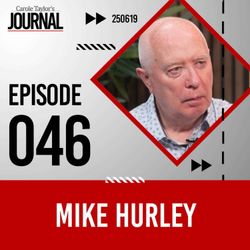
37. 46 | Oh, To Be a Mayor in BC! (w/ Mike Hurley, mayor of Burnaby)
22:39||Season 2, Ep. 37On this edition of Journal, we examine two public policy initiatives that are turning the governing of our province upside down.Mayor Mike Hurley is directly affected in his 2 roles: first as Chair of the Metro Vancouver Board and second as mayor of Burnaby.First, an independent report looking at the governance of Metro Vancouver was needed as a result of the tremendous overrun on the wastewater treatment plant – a budget that went from $700 million to $3.6 billion! How could that happen?Well, the Deloitte report that was just released paints a grim picture:The Board is too big: 41 directors representing 21 municipalities, Tsawwassen First Nations and electoral area A – too many people around the table.The politically elected chair should be replaced by a non-elected professional governance expert.Expenses for the directors should be reevaluated and trimmed.Basically, the report says that this regional government has outgrown its governance structure and must be changed.And as if problems at Metro Van weren’t enough of a distraction, the province recently pushed through legislation that, in effect, overrides the municipal jurisdiction of zoning and permitting – Bill 15 – all in the name of fast-tracking favoured projects.And who gets to decide these lucky winners? The premier and cabinet. Not the Legislature, not First Nations, not municipalities – certainly not you or me.The government is saying, “trust me.” Already, at least one lawsuit is being threatened.So for Mayor Hurley, the challenges and changes are coming at him from all directions.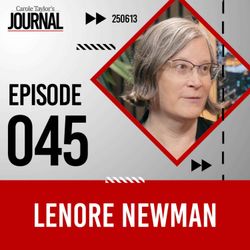
36. 45 | British Columbia: Food Production Superpower? (w/ Lenore Newman)
22:43||Season 2, Ep. 36On this edition of Journal, a look at our food industry and how it is affected by the US President’s on-again, off-again, and maybe on-again tariff threats.Prime Minister Carney has said our relationship with the United States will never be the same again as a result of this major politically driven trade dispute. Canadians must now rethink our defense policies: our supply chain vulnerabilities, our jobs, and our food security. Do we even have food security if over half of our agrifood imports come from the United States?Does this need to be the case? What can we do to change that around? Can we grow or process more of our own food? Are we using our land and resources to the best advantage? Are there innovations that we should embrace with an open mind?Dr. Lenore Newman is one of Canada’s top experts on food security. Currently, she is director of the Food and Agriculture Institute at the University of the Fraser Valley, where she holds a Canada Research Chair in food security.As early as 2019, Lenore was part of BC’s Food Security Taskforce that presented to premier John Horgan and his government their recommendations on how we could improve our situation. Did anything come of that report?Recently, she contributed to a Canada Research Council document called “The Next Course,” which enthusiastically makes the case for Canada to become a “living lab where the world’s food future is born.”Dr. Lenore Newman joins us to explore the opportunities Canada has to enhance our own food security.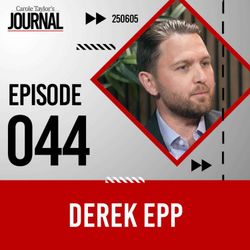
35. 44 | Indigenous Ingenuity (w/ Derek Epp, Chief, Ch’íyáqtel First Nation)
22:41||Season 2, Ep. 35On this edition of Journal, we examine economic reconciliation in action – and not just in theory. Derek Epp is Chief of the Ch’íyáqtel First Nations, one of 9 First Nations in the Chilliwack area. What they have managed to achieve is remarkable.The Conference Board of Canada has done reports identifying the factors that lead to successful economic development for First Nations communities. In brief they are: strong leadership and vision, an economic development plan, access to capital, good governance and management, accountability, and strong relationships and partnerships.The Chee-act-in have ticked all of these boxes under Chief Epp’s leadership. Derek adds one more essential value: ownership. He is an active investor, developer, and partner. And as he says, they have flipped the script and gone from being 90% government-supported to 90% own source funding.As well, as a result of their emphasis on healthcare and mental health support, they now have no children in the Ministry’s care. Derek Epp is a visionary as he tries novel solutions to the issues a small urban reserve faces.While his first degree was in social work with a specialization in First Nations studies, he has gone on to study aboriginal management at the University of British Columbia. He is comfortable talking about zoning, infrastructure, financial partnerships, taxes, and deal making – all part of the Chee-act-in success story.Chief Derek Epp joins us to discuss why his model works and what others can learn from their experience.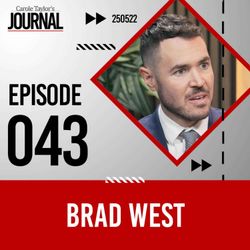
34. 43 | Untangling TransLink (w/ Brad West, mayor of Port Coquitlam)
22:41||Season 2, Ep. 34On this episode of Journal, we try to untangle the complicated, twisted world of transit.I think most would agree that good transit makes for a liveable city or region and also helps with affordability. So when Translink announced that by June of this year, they would be running a $600 million deficit and would have to start cutting service, it got my attention.Already there are some routes where the bus is full by the first stop, and others where service is too infrequent to be useful. So more people, less service – and a huge deficit.Even more surprising was trying to figure out who is actually driving the bus. Who is responsible for a regional transit plan? Is there one? Since the business plan is obviously broken, who has the authority to fix it?TransLink – the organization that announced it was in trouble – has its own board of directors but it isn’t exactly independent. The Mayor’s Council on Regional Transportation over at Metro Vancouver must approve their budget. But – and it is a big BUT – they can’t tell TransLink how to spend the money.Ultimately it comes down to the provincial government. In an attempt to stanch the bleeding, the Eby government promised $312 million in operations funding, which will give TransLink stable funding for 2 years. At best, this has been described as a bandaid and not a long-term solution.Mayor Brad West is the Chair of Metro Vancouver’s Mayor’s Council on regional transportation. He is very aware of the weaknesses inherent in this overlapping governance model and has some thoughts on the need for a long term solution.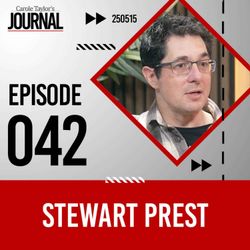
33. 42 | Democracy at Risk (w/ Stewart Prest, UBC Political Science)
22:42||Season 2, Ep. 33On this edition of Journal: in the midst of political turmoil on all fronts, we take a look at how democracy is holding up as a governance construct. Too often, the phrase thrown at political adversaries is that you or your party are a threat to democracy – overused, in my opinion.As Paul Wells says in one of his thoughtful commentaries, “Democracy is supposed to be a conversation.” But what happens if one of the sides stops talking? For instance, by proroguing parliament because no business could be done while the prime minister refused the Speaker’s order for him to produce requested documents?Or what happens when the Emergencies Act, a powerful last resort to maintain the security of our nation, is enacted over a messy, noisy truck convoy? The courts eventually found this action to be unreasonable, not justified, and violated the Charter right to freedom of expression.Or when Bill 7 is written enabling the Premier of British Columbia to override regulations and rules without engaging the legislature, all in the name of Trump tariffs? Public outcry forced Premier Eby to remove the most egregious Clause 4.What is going on?We, as a community, as a country, trust in the idea of democracy. We trust our elected leaders to not take advantage of their power position, to not ignore the rights of legislatures or parliaments to be part of the discussion.So are honking horns and threatening trade tariffs on the same level of national security? I think not.Clearly, democracy takes vigilance and work. Dr. Stewart Prest, a lecturer in political science at UBC joins me to consider these trends.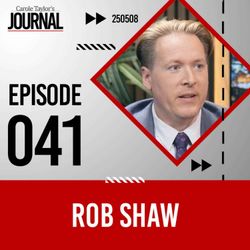
32. 41 | Election Post-Mortem (w/ Rob Shaw, CHEK-TV)
22:40||Season 2, Ep. 32On this edition of Journal: a postmortem on our federal election.Wow, what a ride! What started out as an expected pounding of then-prime minister Justin Trudeau by the Conservative Party under Pierre Poilievre ended up with a Liberal Party win for political novice Mark Carney, our new prime minister.Mind you, there were a few bumps along the way – or rather, one big bump: President Trump. If you were writing a script that said, “Out of the blue, an American President will take over the ballot question for a Canadian federal election,” no one would believe you. But he did, by calling Canada his “cherished 51st state.”All of a sudden we woke up, elbows up, and said, “NO WAY! No way you’re taking our water, no way you are dissolving what you call an ‘artificial line’ that we call a border. No way you are going to bully Canada with threatened tariffs and penalties.”And so the ballot question became, “Which leader would be stronger in standing up to President Trump?” While there will be lots of finger pointing going forward, the people decided – Mark Carney.Whatever happened to the anticipated issues: cost of living, inflation, housing, economic blues? All important, all real – but all put aside in the name of national pride. So very interesting.To help us understand the undercurrents and consequences of this federal election, we are joined by Rob Shaw, senior political correspondent for CHEK-TV. Rob had a front row seat as he covered the drama of this surprising election with his daily reporting insights. What does it all mean for Canada going forward?---Carole Taylor's Journal is a public affairs dialogue that digs deep into the most pressing issues of our times. For more, see our website at http://www.caroletaylorsjournal.ca.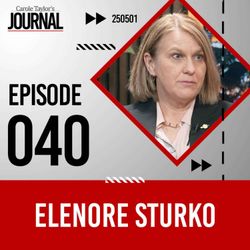
31. 40 | Who Has Our Back? (w/ Elenore Sturko)
22:41||Season 2, Ep. 31On this edition of Journal, we look at how we can’t avoid the escalation in violence against police in British Columbia – police who take an oath to serve and protect us, no matter the cost to themselves.In just the last 3 months, there have been 35 assaults on Vancouver police officers.In one horrific attack – one I’m sure we would all like to “unsee” – an officer was doused in a flammable substance and set afire. In this case, the assailant had ten outstanding warrants. In a rare show of emotion, the spokesperson for the Vancouver Police Department said that these attacks were enraging to our officers who are just trying to do their job: protecting us.So we circle back to the question of why these dangerous individuals are out on our streets. Time and time again, they are repeat offenders, frequently with complex co-occurring mental health and addiction issues.So how is our system letting all of us – including the police – down?Is it bail reform that is needed? I mean, really – how can someone come before a judge thirty or more times and still be released?Is it a lack of mental health support or a lack of involuntary care for those with deep, deep problems?Is it an addiction treatment model that just doesn’t work?These are some of the questions Elenore Sturko has been asking in the Legislature as the Conservative Critic for the Solicitor General and Public Safety.Her passion comes, in part, from her thirteen years experience as an RCMP officer, seeing first-hand the devastation our current approaches have wreaked.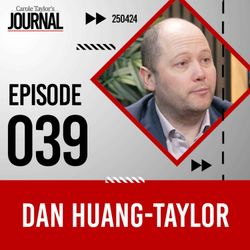
30. 39 | Food Banks Going Hungry (w/ Dan Huang-Taylor, Food Banks BC)
22:41||Season 2, Ep. 30On this edition of Journal, we look at how inflation and higher costs for just about everything, especially housing, are affecting British Columbians.Right at the pointy end of the stick are our food banks. They are among the first to sense when something is going very wrong. Usually when you say something has had a record-breaking year, it is a good thing. Not so with food banks.In the last 5 years, visits to food banks in our province rose 81%. One month topped 100,000 visits, the most ever seen since food banks first started some 40 years ago in this province.Even more concerning is the change in who is coming through the front door. More and more often, it is someone with a job, but a job that can no longer cover the costs of food and housing in BC. Towards the end of the month, many turn to our food banks for help in feeding their families.As well, according to Dan Levitt, BC’s Seniors Advocate, many older British Columbians are feeling the squeeze, trying to pay their rising bills on a fixed income. Sadly, it is often the cost of food that is one bill too far – thus they turn to our food banks as well.Food Banks BC is the provincial association of food banks; over a hundred hunger relief agencies belong. As executive director, Dan Huang-Taylor supports the mission to not only meet the emergency short term needs of British Columbians, but also work with others towards a hunger free community – a monumental task to take on.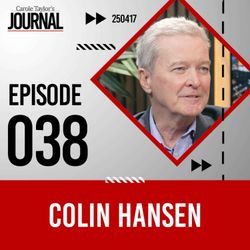
29. 38 | Breaking Down Trade Barriers (w/ Colin Hansen)
22:38||Season 2, Ep. 29On this episode of Journal, we try to understand the complexity of our interprovincial trade barriers – those infamous barriers everyone is now talking about. One man who knows something about this is Colin Hansen, one of British Columbia’s most accomplished politicians.In Gordon Campbell’s governments, he served as Minister of Health, Finance Minister, Minister of Economic Development, Minister responsible for the Asia Pacific and the Olympics, back to Finance after I left, and then was named Deputy Premier.One of his most challenging assignments was to tackle the interprovincial trade barriers between BC and Alberta.Today we have the prime minister, most premiers, and many business people responding to Trump’s ever-changing tariff threats by recognizing that it’s sometimes harder to trade with our own provinces than it is to do business with the United States – thus, the renewed call for free trade within Canada.Sounds good. I’m all for it, but it is not easy. I watched Colin Hansen struggle in 2006 trying to get a free trade agreement with just one province, Alberta.Why can’t our doctors, nurses, engineers, etc. automatically have their credentials accepted in every province?Whose standards for food safety or environmental requirements will be accepted?I remember during Colin Hansen’s negotiations, there was a moment when we ran into a roadblock – literally – over the size of truck tires, which are different in each province.So I applaud the words that are being said. It is the right thing to do. But turning those words into action will not be quick. Every province will have their own list of non-negotiables.